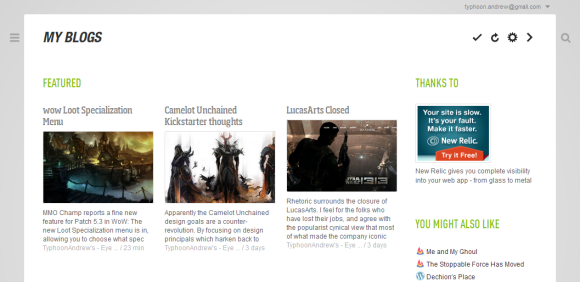I’m really looking forward to the end of social everything. Gluing a social tag to everything is gradually killing my desire to engage with this movement anymore. It is getting tired very quickly. Social might finally be nudged out by the cloud* shortly, or perhaps by the next buzz word. I hope it is soon.
Now don’t get me wrong – I’m pro-social, I really like what social awareness and open dialogs can do for businesses, there is a definite reason to get involved, and value that can be returned in both satisfaction and money. It is worth doing well, especially if it can be well resourced. It just feels like the ground swell of understanding is at that sickly sweet spot where we all understand the basic idea, the complex aspects are gaining ground, but our terminology has not evolved enough to create effective new terms. We’re in hype and I’m not a fan of hype.
To me it seemed to all start with the “x“, that frustrating butchering of English to give us X-treme products (graphics cards, motherboards, and wind surfers). Branding and marketing hell. Then somebody discovered that “e” was under utilised. e-phone, e-pc, … all rolled forward through the brightly coloured infomercials. The end of the “e” product was too shortly followed by the “i” products. The iphone led the charge, and we were swimming in a much wider array of offerings which sought to hook in to the hype. I barely got my hands on a laptop before the next generation added a different leading character of the alphabet, and a new swirl and lens flare affect which made my older unit seem rather outdated.
We saw digital become web 2.0, which then created and then smashed expectations for some businesses. The DotCom (why on earth is it spelt out?) era trained the public to be skeptical, but I think some folks have forgotten the pain of the past.
I cannot help but feel that the first tech bubble will be a doddle to what happens when the stock market actually realises what value Facebook can actually offer to investors – some values floating around are in the $84 to $100 billion. That is just too much money for an application which can be devalued by changes in public perception (like the anti Facebook folks), a few service delivery or privacy issues, or some strong competition from the likes of Google+ (or should that be written as GooglePlus). Think about that figure – more than the GDP of 22 countries akin to Vanuatu as one company. Really? No hype at all?
It has gotten to the point where the tag social is added to almost everything in an attempt to prove that somehow the offerings are current and valid. If you have a media company these days you have to be shunting social into your tags to get the right rankings. That in turn provides a positive feedback loop where attention goes where the money is spent, and we feed the banter as much as the organisations who have capacity to deliver. However having social debunked as a buzzword will mean that when it is used it will be useful. It is like when the term integration replaced innovation many years ago. A snazzy tech start-up would have to include these terms in their website so that they were perceived as competent. In those days it was just required, but after a while it said very little. Who would own up as not being innovative? Now we look for the specific methods, forms, and technologies used in the integration before deciding if the organisation is useful.
Lets get back to talking about what can be done, what has been done, and talk through the actual value. This blog might have a bloody tiny readership but I do not think I am alone as a professional working in around social and the other popularist buzzwords, who are sick of trying to deconstruct or interpret what an offer might be because a buzzword has been applied.
- Is it a social campaign, or a campaign which uses a range of technology and media? And why?
- Is it actually a cloud solution, or a distributed scalable hosting solution? And why?
Look at actual capacity to deliver a return, stability and breadth of experience, and knowledge and passion for continuing to effect change. If anything the term I think has most resonance for me in recent years is disruption.
The desire to disrupt the way we were doing business or talking to customers & consumers. The acceptance of the disruption as a normal part of the flow; and the planning around how we deal with that ongoing flow in the short to long term. When you embrace an level of disruption you are accepting that change will occur outside your normal comfort areas. It changes the way we think, as planning becomes tactically adaptive as well as projected strategically (yes, more buzzwords).
There is value in what social is both forcing and bringing to us as a culture – and I think that value has always been present but rather hidden, somewhat low key. But we now have a way (via new apps, bandwidth, and awareness) to expand our reach and potential influence, and with that organisations are changing to suit too. It is mostly positive, and hopefully we have some other diverse terms to share with each other, so that the events can be classified and understood as more than just social.
I just need to get to one of these groovy breakfast/brunch catch-ups more regularly; perhaps the project budget will extend a little…sideways.
Happy socialising folks, may all your launch events be catered.
*Cloud is another great tech term that means a slight change in technology, but is more a change in perception of delivery, rather than a revolution or true innovation…perhaps for another time.
 RSS Feed
RSS Feed

